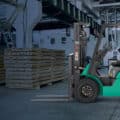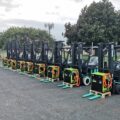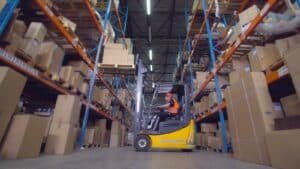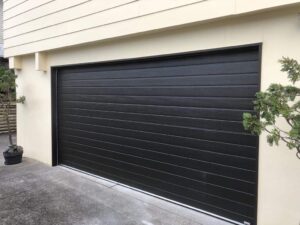Are you in the market for a Mitsubishi forklift in New Zealand but not sure what power type to choose? If so, you’re not alone. Picking out the right forklift for your business’s needs is an important decision and one that requires careful consideration. In this article, we will discuss the different power types available from Mitsubishi and how to choose the best one for your business.
Lead Acid Forklift Batteries
Lead acid forklift batteries have been a reliable and cost-effective energy source for forklift trucks for many years. They are a type of rechargeable battery, which uses lead and sulfuric acid as the two main components. Lead acid batteries are preferred for their low cost and proven performance.
The lead acid battery is made up of a number of cells, each filled with a liquid electrolyte consisting of sulfuric acid and water. The cells are connected with a series of grids and plates, which are composed of lead and lead oxide. During operation, when the battery is being charged, the lead and lead oxide plates are oxidised and the sulfuric acid is reduced. This process creates a current of electricity, which is then used to power the forklift truck.
Advantages
The main advantage of lead acid forklift batteries is their low cost, as they are much cheaper than other types of batteries. They are also relatively easy to maintain and have a long life expectancy. Additionally, they are able to provide a consistent level of power and are able to tolerate long periods of inactivity.
Disadvantages
The main disadvantage of lead acid forklift batteries is that they are prone to sulfation, which is when the lead plates become covered in sulfuric acid and can no longer accept a charge. This can lead to a decrease in performance and a shorter battery life. Additionally, lead acid batteries are not as efficient as some other types of batteries, such as lithium-ion.
Lithium-Ion Forklift Batteries
Lithium-ion forklift batteries are a popular and efficient alternative to traditional lead-acid batteries in modern warehouse operations. They are a type of rechargeable battery, which is becoming increasingly popular in a range of industrial and commercial applications due to their lightweight design and high energy storage capacity.
A lithium-ion forklift battery is composed of an anode and a cathode, which are separated by a polymer electrolyte. The anode is usually made from graphite, and the cathode from a metal oxide. When the battery is in use, ions flow from the anode to the cathode, creating an electric current.
Advantages
The main advantage of a lithium-ion forklift battery is its lightweight design. This makes it easier to transport and manoeuvre, and the battery itself can be up to 80% lighter than a traditional lead-acid battery, leading to significant fuel savings.
In addition, lithium-ion batteries are highly efficient and can hold a charge for much longer than lead-acid batteries. This means that they can be used for longer periods of time and require less frequent charging. Furthermore, they require less maintenance and have a much longer lifespan than lead-acid batteries.
Disadvantages
However, there are also some disadvantages to using a lithium-ion forklift battery. The most significant disadvantage is the cost. Lithium-ion batteries are typically more expensive than lead-acid batteries, which can make them prohibitively expensive for some operations. Additionally, they are sensitive to extreme temperatures and can be damaged if exposed to temperatures above or below the recommended range.
Diesel Powered Forklifts
Diesel powered forklifts are a common piece of heavy-duty equipment used in industry and warehouses to lift and transport heavy loads. Diesel forklifts are powered by diesel engines, which are known for their high power output and durability. These forklifts are typically used for long-distance transportation of goods and materials, as well as for jobs with heavy lifting requirements.
Advantages
One major advantage of diesel powered forklifts is their fuel efficiency. Diesel engines are known for their ability to deliver high power output while consuming relatively low amounts of fuel. This makes them an economical option for businesses requiring frequent and long-distance transportation of goods. Additionally, diesel engines are known for their durability and long life span, which means you’ll save money in the long run on maintenance costs.
Another advantage of diesel powered forklifts is their power output. Diesel engines are known for their high torque, which is the twisting force that allows a vehicle to move and accelerate. This makes them ideal for heavy lifting operations, as they can easily handle large loads with ease. Additionally, diesel engines are usually quieter than gasoline engines, making them ideal for warehouses and other areas where noise pollution is an issue.
Disadvantages
Despite their many advantages, there are also some disadvantages to using diesel powered forklifts. One of the biggest drawbacks is their cost. Diesel engines are more expensive than gasoline engines, meaning that diesel powered forklifts are typically more expensive than their gasoline counterparts.
Additionally, diesel engines require more maintenance than gasoline engines, meaning that you’ll need to spend more money on upkeep and repairs. Finally, diesel engines can be more polluting than gasoline engines, meaning that you’ll need to take steps to reduce emissions to comply with local regulations.
LPG Powered Forklifts
LPG powered forklifts are powered by a liquid propane gas (LPG) engine. This type of engine is more efficient and emits fewer harmful emissions than traditional diesel or gasoline engines. Because of this, LPG powered forklifts are a popular choice for operations that need to reduce their carbon footprint and comply with environmental regulations.
Advantages
The advantages of LPG powered forklifts include cost savings, as they are more fuel efficient than gasoline or diesel powered vehicles. Additionally, they are quieter than traditional engines and typically require less maintenance. Another advantage is that LPG powered forklifts are clean and safe to operate, with lower emissions of hazardous gases.
Disadvantages
Despite these advantages, there are some potential disadvantages associated with LPG powered forklifts. One of the most significant disadvantages is the cost of the vehicle itself, as the upfront cost of an LPG powered forklift is usually higher than that of a gasoline or diesel powered vehicle. Additionally, LPG powered forklifts require special tanks and equipment for refuelling, which can add to the cost.
Conclusion
Choosing the right Mitsubishi forklift power type requires careful consideration of the application and environment in which it will be used. The right power type can help extend the life of the forklift, reduce operating costs and improve productivity.
With a wide range of power types available, there is a Mitsubishi forklift for sale that meets the needs of any business. By taking the time to evaluate the needs of your business and weighing the available options, you can ensure that the power type you choose is the perfect fit for your application.
For more on the forklift industry, check out this insightful piece on unlocking business success with forklift hiring.











